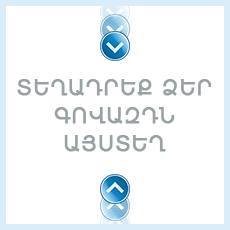Անվճար աշխատանքներ Ռեֆերատ The Role Of The Internet Language
Բովանդակություն
Introduction
Chapter I. The Main Peculiarities of the Internet Language
1.1 General Characteristics of the Language of the Electronically-Mediated Communication
1.2 The Impact of the Internet on Language
Chapter II. General Characteristics of the Language of E-mails and Chats. Colloquialisms, Slang and Ellipsis
2.1. The Language of E-mails and Chats
2.2. The Use of Colloquialisms, Neologisms, Slang and Ellipsis in the Online Discourse
Conclusion
Հատված
Language is a means of forming and storing ideas as reflections of the reality and exchanging them in the process of human intercourse. It is social by nature and is inseparably connected with the people who are its creators and users, and develops together with the development of the society. It incorporates three constituent parts each being inherent in it by virtue of its social nature. These parts are the phonological system, the lexical system and the grammatical system. Only the unity of these three elements forms a language; without any one of them there is no human language in the above sense.
For many people, the words are the centre of language, considering the fact that the most obvious and recognizable parts of any language are its words or its lexicon.
There are thousands of words in any given language, although most speakers know and use only a relatively small number of them. People create new words that express new concepts or ideas over time. These can be completely new words, or new meanings for the existing words.
Գրականության ցանկ
1. Anne Stilman “Grammatically Correct: The Writer՚s Essential Guide to Punctuation, Spelling, Style, Usage and Grammar,” Writer՚s Digest Books, Cincinnati, 1997.
2. Apostolis K. Salkintzis “Mobile Internet: Enabling Technologies and Services,” CRC Press, Washington, 2004.
3. Arvid Kappas and Nicole C. KrՊmer “Face-to-Face Communication over the Internet. Emotions in a Web of Culture, Language and Technology,” Cambridge University Press, Cambridge and New York, 2011.
4. Barbara Ann Kipfer and Robert L. Chapman “Dictionary of American Slang,” Harper Collins Publishers, New York, 2007.
5. Barbara Raifsnider “Fluent English: Perfect Natural Speech, Sharpen Your Grammar, Master Idiomatic Expressions, Speak Fluently,” Random House USA Inc., New York, 2005.
6. Bill Bryson “The Mother Tongue English and How it Got That Way,” William Morrow and Company, Inc., New York, 1990.
7. Brenda Danet and Susan C. Herring “The Multilingual Internet Language, Culture, and Communication Online,” Oxford University Press, Oxford and New York, 2007.
8. David Crystal “English as a Global Language,” Cambridge University Press, New York, 2003.

